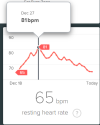This is true - energy is energy, but calories are not a great way to represent it in the context of food and managing weight. It is currently the simplest way to compare one food product with another but I think something better could replace it.
Consider for example if the energy expended during the process of metabolising carbs, protein or dietary fat, and getting that energy stored as body fat, were considered a bit like an 'income tax' on calories-in. Consider a food package labelling system that used net values - calories minus 'tax' - instead of or in addition to calories - the raw energy in the food. Call the net value 'Metabolic Energy Units' or whatever. The result would be numbers on food packages that are much closer to the mark in answering the question that most people actually care about - the likely effect of that product on their weight. It still wouldn't be perfect, but it would perhaps be a step in the right direction.
I'm not sure if I understand your analogy. I do know one thing for a fact: If you consume fewer calories than you expend - you will lose fat.

